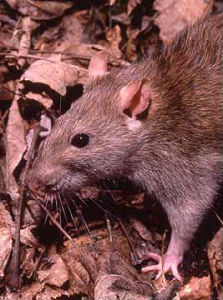
Neuroscientists from the Picower Institute for Learning and Memory at MIT have discovered that after completing a task, a rat’s brain will mentally replay recent events, but in reverse order. They believe this process plays a key role in learning and memory and may explain why taking frequent breaks when studying is more effective for learning new material than cramming for extended periods of time. Their work could yield a better understanding of amnesia, Alzheimer’s disease and other memory disorders and lead to more efficient methods for learning and memorization.
The researchers, Matthew A. Wilson, a professor in the Department of Brain and Cognitive Sciences and postdoctoral fellow David J. Foster, studied the activity in the hippocampus cells of rats as they navigated both new and familiar courses. The hippocampus is a seahorse-shaped structure located in the temporal lobe, long believed play an important part in both memory formation and spatial navigation.
During each session, a rat would run back and forth on a linear track and receive a small food reward upon completing a lap. Using tiny electrodes connected to the rat’s brain, the scientists were able to monitor and record the activity of the rat’s hippocampal cells which would fire in a particular sequence as it ran. When the animal stopped to eat the food, it would often pause before starting another lap to perform some other seemingly inconsequential task like groom itself, move its whiskers, or just stand still. It was during this brief downtime that scientists witnessed the hippocampal cells firing again, but this time in a pattern that was the opposite of what had fired while the rat was previously moving. Although the entire pattern was fired in reverse, the reverse firing process occurred much more quickly than the time span of the corresponding original movement. Upwards of thirty seconds of movement were often played back in reverse in just a fraction of a second. Additionally, the reverse replay happened more often when a rat was on an unfamiliar course than on one it had run before.
Wilson believes this process is how the hippocampus reinforces learning. The fact that it occurs more often on unfamiliar courses seems to support this theory. In today’s MIT press release he says, “Understanding this replay is likely to be critical in understanding how animals — and humans — learn from experience. This phenomenon may constitute a general mechanism of learning and memory.”
The hippocampus of rats is very similar to those of other mammals including humans, and although this study focused specifically on spatial learning, the hippocampus is believed to be important for other types of learning as well, meaning the reverse replay mechanism probably plays a role in a wide range of learning situations.
The study appeared in the February 12th edition of Nature.
Read the MIT press release: “Picower researcher explains how rats think.”
